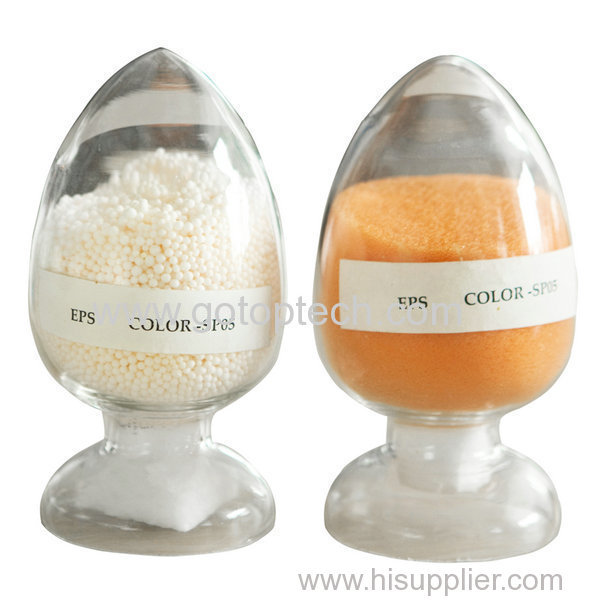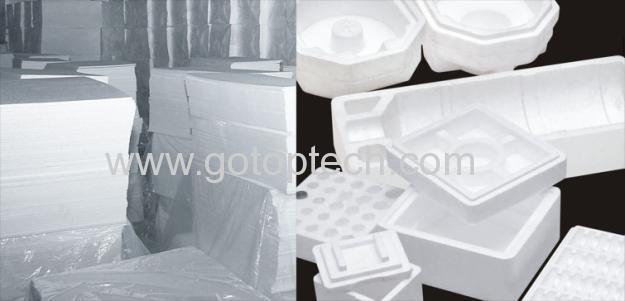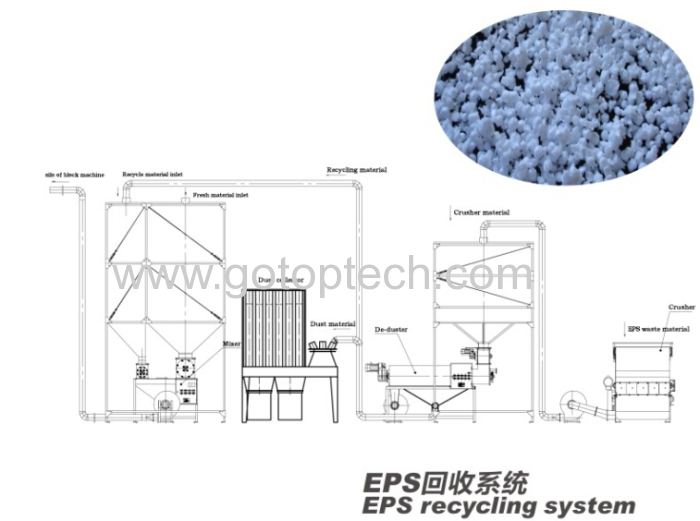News
EPS is 100% Recyclable

About EPS
Expanded polystyrene, or EPS for short, is a simple material with a unique combination of qualities. It offers high resistance to the passage of heat energy - it is a very effective insulator. It is also economical, offering high R-value per dollar.
Expanded foams (EPS) are commonly known as bead boards. The raw material is a small bead. These are heated with steam and the softened plastic expands as the pentane gas trapped in the plastic beads expands. These pre-expanding beads are then cured during an aging process. The cured beads are than introduced to a mold where further contact with steam softens and expands the beads to fill the mold cavity and fuse the beads tightly together. The molded foam can be in large rectangular blocks that are further processed by cutting with hot wires into standard sized sheets or custom cut billets. This is known as block molding. The basic EPS blocks are cut and shaped to produce a variety of eps sheet, board and panel products including Foundation Plus/Sheathing, and others.
For certain eps products, such as Reward Wall ICFs and Styropack shipping containers, the polystyrene is shape moulded during final expansion.
EPS is structurally rigid and stable, yet very light. It is very easy to cut and shape using the simplest of tools. It produces no irritating fibres or annoying dust. EPS products make the job quicker for both contractors and do-it-yourselfers.
EPS insulation doesn't change or deteriorate over time. EPS sheets and panels cannot sag or bunch. EPS insulation is unaffected by freeze-thaw cycles, and cannot rot or mould. EPS insulation's R-value is permanent.
EPS insulation is very resistant to the passage of water, yet it "breathes." Vapour passes through. This avoids condensation buildup within walls, a serious problem which can arise with other insulation systems. And because of the rigid closed-cell structure of EPS, there is no possibility of the kind of air movement inside the wall which can lead to heat loss in loose or blanket materials.
Product Performance... Environmental Protection
Low Thermal Conductivity EPS Containers protect contents against sudden temperature changes better than competitive materials, such as cardboard, for the same use. The insulating properties of EPS help maintain product quality and reduce wastage… Making EPS containers the natural choice for your products and the environment
Lightweight PackagesThe lightweight nature of EPS containers results in lower shipping costs and less impact on the environment than competitive materials.
Absorbs high levels of energy when dropped or subjected to impactThe protective qualities of EPS helps lower your overall packaging costs by reducing product wastage. This is another performance advantage that benefits both the processor and the environment.
Chemically Inert EPS containers can be safely used for food packaging.
Chemically Inert EPS containers can be safely used for food packaging.
Strength and Durability are completely retained even on direct contact with waterAs with other protective characteristics of EPS containers, its ability to retain its integrity following direct contact with water helps reduce wastage, and in turn lower your costs of packaging and benefit the environment.
EPS is 100% Recyclable.




Pre Page:
Fast-type EPS Expandable Polystyrene Raw...
Next Page:
EPS/Expandable Polystyrene Beads /EPS...




